Part 1 of “
Defense of Supernatural Season 12” makes the case that the return of Sam and Dean’s loving relationship and the harmonious blending of the season’s arcs added up to one of the best years in the
Supernatural series. In Part 2, Samandean addresses the other major characters and storylines, and how they contributed, or detracted, from season 12’s enjoyment.
Lucifer
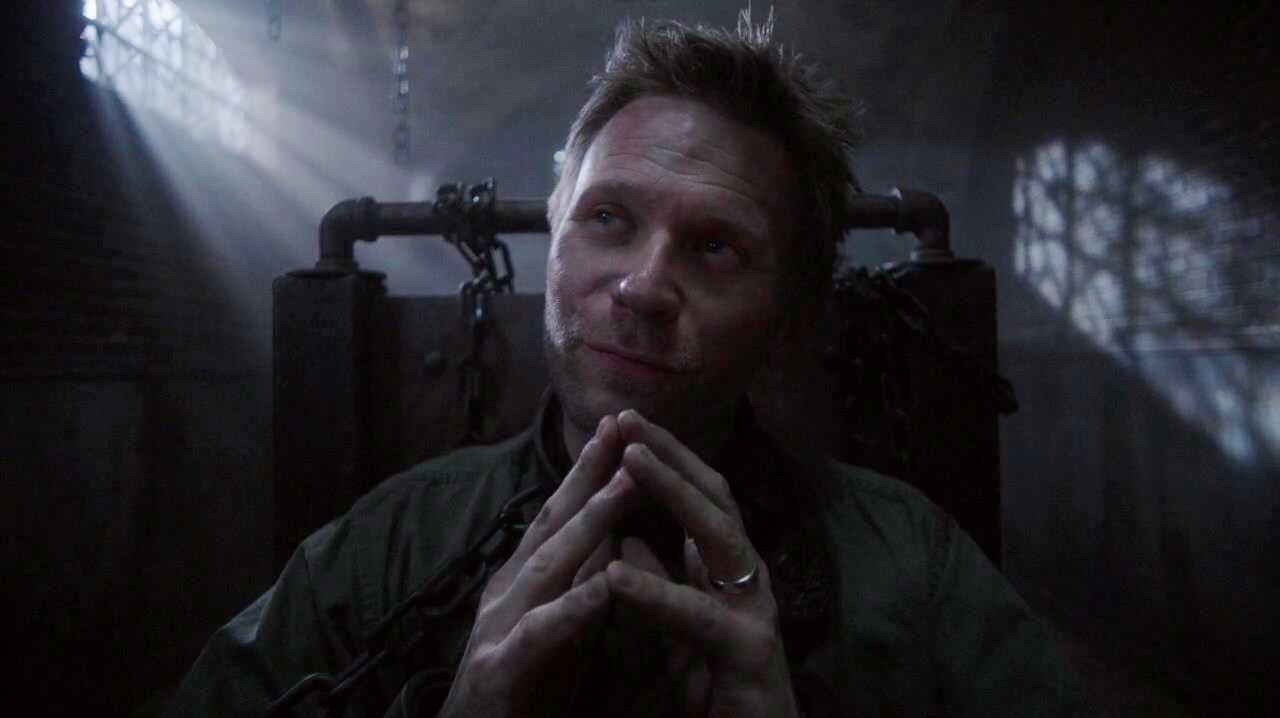
The Lucifer storyline was the most familiar of the three season arcs but what some would characterize as a retread, I felt was a logical continuation of his story. It was executed in a manner consistent with canon, but also gave an incredibly fresh twist. Everything that Lucifer had done up until this season, going as far back as the Kripke years, was motivated by his anger at what he perceived to be God’s betrayal of him. He was expelled from heaven and cast into the pit because he refused to bow down to the hairless apes rather than to God, as God commanded him to do. As he asked Dean in “The End,” “Did the punishment fit the crime?” Kripke expressed in an interview that he felt Lucifer had a point and that the punishment did NOT fit the crime. This open wound started to heal a bit last season, when Chuck apologized to Lucifer for abandoning him to the pit. But then came an even worse betrayal. After Lucifer put his life on the line to help Chuck and the hated Winchesters defeat Amara, Chuck once again abandoned Lucifer to an uncertain fate, neither knowing nor caring what had happened to him. Lucifer now knows beyond a doubt that he has never meant anything to Chuck and he never will. So, for the first time, Lucifer has no agenda other than to avenge himself on Chuck by smashing as many of his toys as he can. And avenge himself he did.
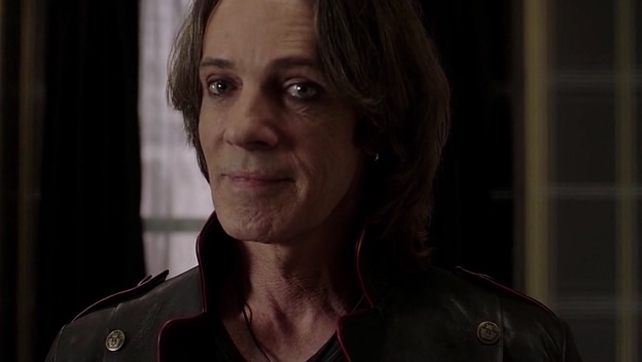
Everything about this storyline worked for me, from the body-jumping, to the wonderful incarnation of Lucifer in Vince (kudos to Rick Springfield – he managed to almost make me forget that Casifer ever happened), to his eventual return to his original meatsuit. Lucifer’s curtain call as Vince, at the end of “Rock Never Dies,” beautifully captured Lucifer’s motivations and feelings, as first laid out by Kripke in “The End.” But rather than settling for a Lucifer storyline that was merely true to canon, Dabb created new canon when he unveiled the shocking twist of Lucifer fathering a nephilim. I vividly recall the shot of Lotus’s ominous smile after Kelly mentioned the possibility of having a child. I think I actually jumped out of my seat and exclaimed “a nephilim!” To anyone who saw that coming, I applaud you. To me, it was a simply stunning surprise that propelled the Lucifer storyline in an entirely unexpected direction, one that culminated in the best season-ending shot since S 3- the dimly seen nephilim with glowing eyes and that eerie smile is emblazoned in my mind.
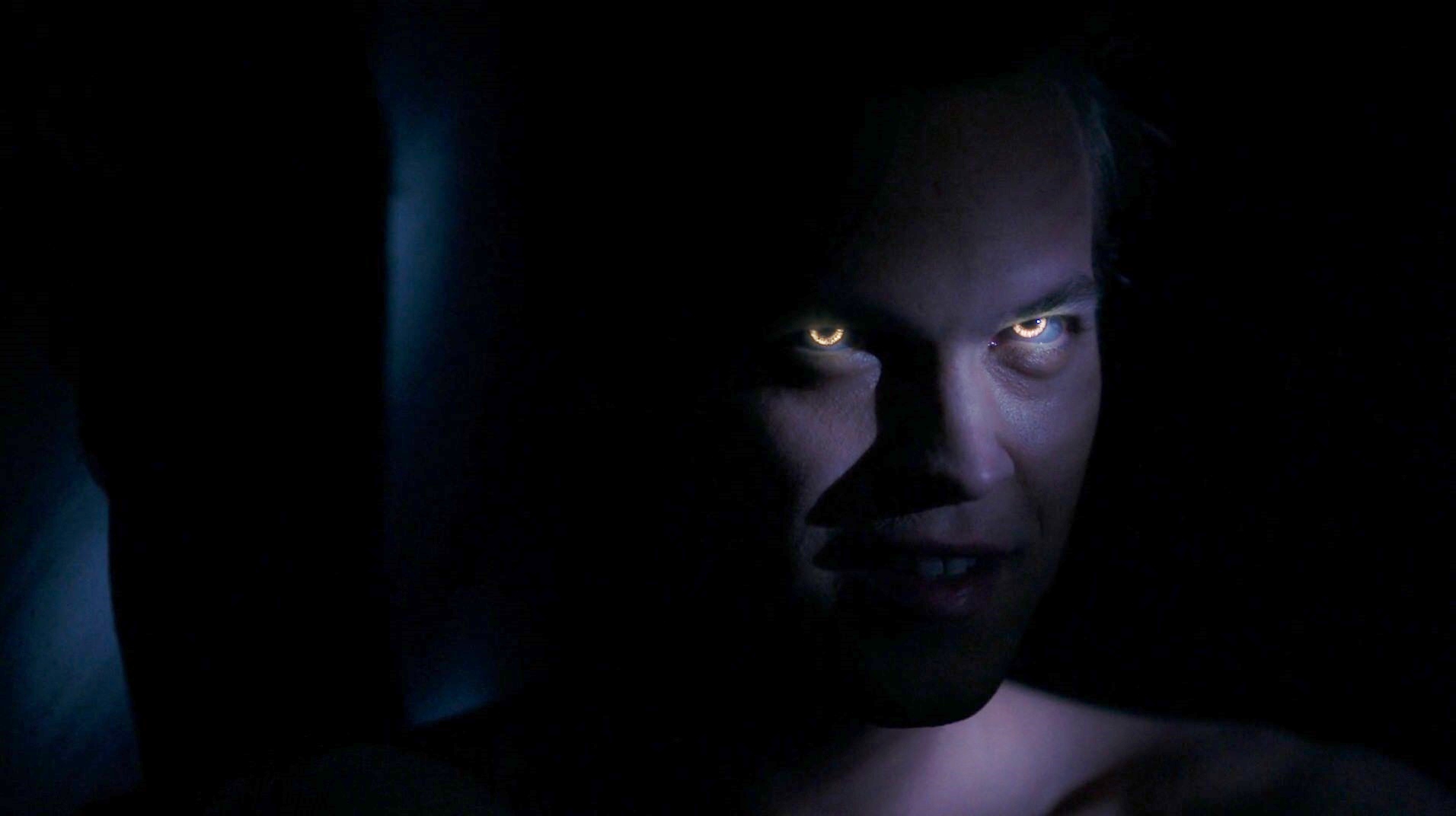
The Lucifer storyline had its lulls; his interlude as Crowley’s prisoner went on a bit too long, amusing though it was. But it came with its own surprise of the doctored meatsuit and Crowley’s initial triumph over his hated enemy. However incomprehensible the explanation for the Nick-suit was, it enabled the show to restore Lucifer to his Mark Pellegrino glory, so for me, all is forgiven. Some of his scenes as Crowley’s prisoner were amazing, such as his communications with Dagon and his treatment of the minion demons. The way MP can quickly shift from snark to utter menace will never get old for me. This was a well-thought out story arc that was sustained throughout the season, and that managed to provide a role for both Cas and Crowley. The culmination of Lucifer’s storyline in the alternate universe (AU), with his chilling look of ferocious anger directed at Mary, was a great denoument.
The British Men Of Letters (BMoL)
Opinions about all of the season storylines was sharply divided, but this story also occasioned some anger that the Winchesters were now in the position of fighting humans rather than monsters. Without belaboring it, I agree with those who think that the line between human monsters and regular monsters has always been somewhat blurry. Are witches humans or monsters? Were the special children and Magda human or monsters? And what about Sam? Was Dean correct that he was a monster in S4? “The Benders” had no supernatural abilities, but in some ways, to me and to the brothers, they were worse than monsters. What about the Stynes? Does any human who utilizes supernatural methods such as spells become ipso facto a monster, or does it depend on his/her intentions? These are the kind of thorny questions that the show used to be so terrific at incorporating in the episodes. In “Nightmare”, Sam staked out the position that Max was a human, and as such, not to be killed by the brothers. Dean felt that since Max was killing people with his powers, their only viable alternative for stopping him might be to kill him. But even for the brothers, the line between killing monsters and killing humans has become blurred over the seasons, and they have both shown a willingness to kill humans if they thought the situation warranted it.
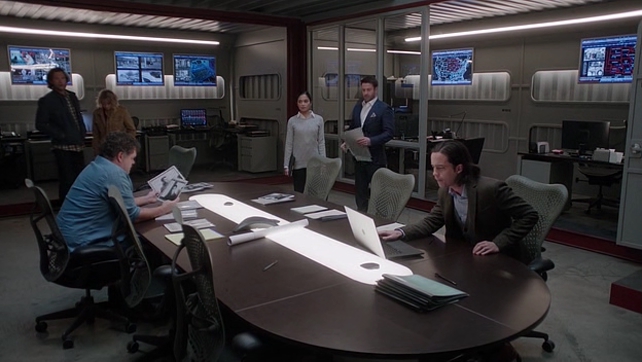
So are the BMOL merely human, like the Benders or are they something more, because they use supernatural methods and tools for evil purposes? I view the BMOL as monstrous, if not technically monsters. In any event, I had no problem with them being antagonists for the brothers this season. Some viewers were uncomfortable when Sam and Mary allowed the BMOL to take Pierce away to be punished at the end of “The Raid”. Other viewers objected to the fact that Dean was about to execute Toni in “Who We Are,” and to the way he later watched in silent satisfaction as Mary shot a helpless Ketch. To me, these situations differed little from those innumerable occasions in which the brothers have killed all manner of quasi-human monsters because they had little choice. If they wanted to protect themselves and the world from the violence and depravity of the BMOL, they had no other option than to kill them. But mostly, I was just happy that Dabb presented us with the issue and provoked a lot of lively debate on the topic. It was very reminiscent of the types of murky moral issues that Kripke wove throughout his five seasons.
While the BMOL was a fresh idea for the show, it was also firmly anchored to canon relating to the MOL. After Carver introduced the MOL, which I thought was one of his best storylines, he failed to explore in much depth the rich story possibilities in that concept. One of his few efforts at broadening our knowledge of the MOL gave us the intriguing character of Cuthbert Sinclair (Magnus), a MOL gone bad. He wanted to use the vast resources of knowledge and lore at the MOL fingertips in a more proactive fashion to combat evil, and in so doing, he became as evil as many of the monsters the brothers hunted. The MOL cast him out because his vision for their goals and methods did not fit in with what the other members viewed as their more cerebral role in fighting evil, in which they left the dirty work up to a few trusted hunters. Some of the BMOL bear striking similarities to Magnus, in that their end goal has far more to do with achieving and maintaining power than with saving people, and in their willingness to use supernatural means and violence to attain their goals. Admittedly, the back story we got on the BMOL training methods was laughable and cartoonish, as was Hess, but Dabb also introduced some interesting and nicely fleshed out characters who gave us insight into the BMOL methods and goals, and who greatly added to the storyline and to the season.
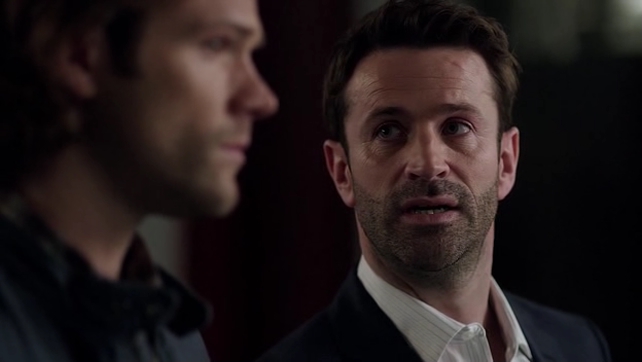
Mick was a wonderfully complex and sympathetic character who was a terrific foil for the brothers in his relatively few scenes with them. He evolved in a plausible fashion over the course of the season, from a reflexively obedient BMOL operative to a decent person trying to find his way along a more moral path. His soul-searching was the highlight of “Ladies Drink Free”. It was a very well-executed character arc, and Adam Fergus did a terrific job bringing this nuanced character to life. I was very sorry to see him go.
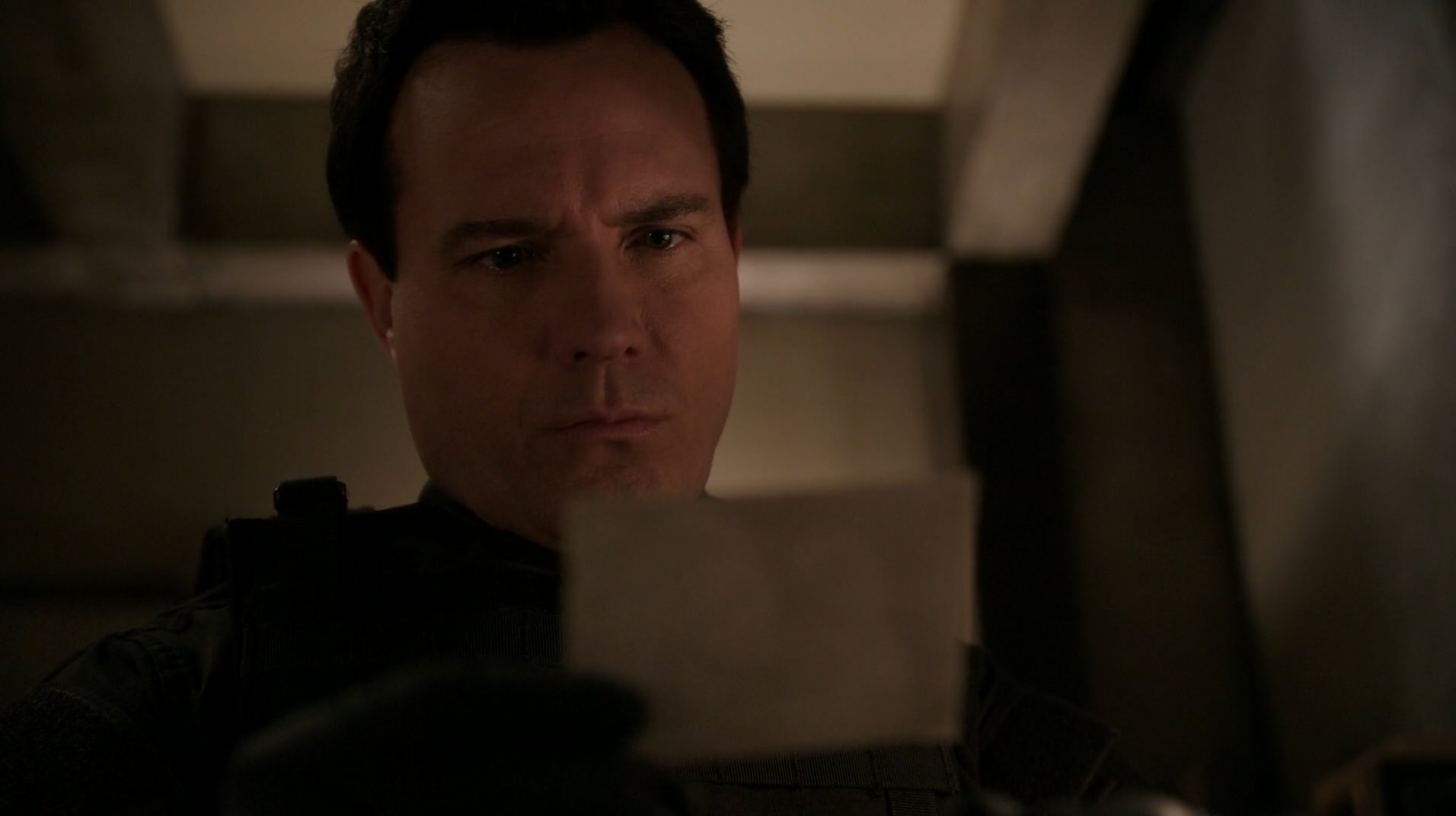
Ketch was also a fantastic character who brought excitement and spark to every scene he was in. The introduction of Ketch was teased out in an effective way, initially limited to shots of his cross tattoo and to ominous references to him as a fearsome enforcer and as a “psycho.” After a few more sightings of him on his bike, he was finally revealed to us after he killed Magda in shocking fashion. I like that the show upended my expectations of what Ketch would be like. While I assumed he would be played as thuggish and menacing, instead he was presented as an urbane, upper crust Brit. The most delightful Ketch scene was his introduction to the brothers in “Lotus” in which he was amusingly cold-blooded and dismissive of both the brothers and even of Cas. In many ways, Ketch reminded me of the early season demons and angels, who delivered horrifyingly cruel, vicious dialogue that was also simply hilarious. But just as Kripke always preferred to present us with more three dimensional bad guys, so too did Dabb provide a portrait of Ketch that humanized him somewhat. There were hints that perhaps he had been brainwashed or even brutalized at a young age by the BMOL in such a way as to turn him into a psychopath. But it was primarily through his relationship with Mary that we saw that some human feelings lurked under that icy exterior. He appeared to genuinely care for her, and David Haydn-Jones nicely conveyed that Ketch was torn when an imprisoned Mary desperately pleaded with him to help her. It was quite satisfying when Mary killed Ketch, but it was a testament to the writing for this character and to David Haydn-Jones’ acting that I had some mixed feelings about his death.
The other interesting element of the BMOL is the mystery of the “old men,” who were referenced repeatedly this season, and one of whom was finally heard from in 12.22. Presumably we will be hearing more about them in S13, and my firm belief is that some supernatural being- my money is on Asmodeus- is the guiding influence behind the BMOL, and the reason that what was seemingly a benevolent organization with laudable goals has turned into something sinister.
I thought the BMOL storyline was developed beautifully, from the initial depiction of an organization that was evil, as personified by Toni and Ketch, to one that was possibly at root benign, like Mick and some of his staff, and ultimately to a group that had been completely corrupted and was almost indistinguishable from the monsters the brothers hunt. Like the best storylines, it provided some wonderful insight into the brothers, as well as into Mary. It was the catalyst for the initial rift between them as well as for their ultimate wonderfully depicted reconciliation.
Mary’s Return
I continue to be bemused by the fact that a storyline that I loved is perhaps the most widely-disliked of the three – at least by my unscientific estimate based on WFB comments. 🙂 I thought that Mary’s return and her character arc this season were fantastic. I initially was very apprehensive about her resurrection, because I adamantly opposed any development in which she would simply move into the bunker and assume the role of matriarch of a family of hunters. I did not want anyone, not even Mary, to throw off the dynamic between the brothers that is the primary reason I am so devoted to this show. I want them to always be the single most important thing to each other, without exception. So I was surprised by how much I liked Mary in the first couple of episodes, and it is largely a testament to Sam Smith’s acting. She is simply phenomenal.
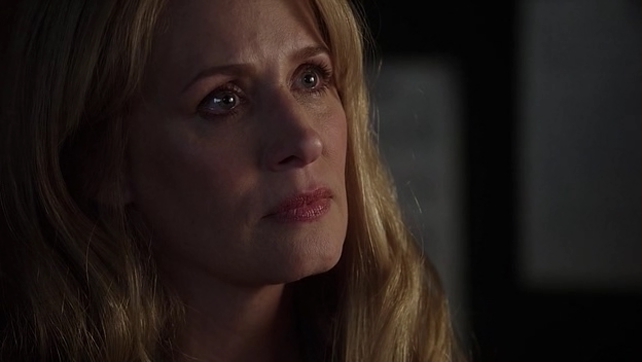
The initial scenes between Mary and Dean were extremely touching. Sam Smith beautifully conveyed the wild mix of emotions she was feeling: confusion, dislocation, grief, guilt. She was appalled to learn that the sons whom she had wanted to keep far away from the hunting life were in fact hunters, and had been raised that way by a revenge-obsessed John. Even worse, she knew that every bit of it could be laid at her feet because of her deal with the YED. She clearly expressed her guilt about this to Dean in “Mamma Mia,” as well as her fear that she would be unable to look Sam in the eyes. She also was grief-stricken at having been ripped from heaven where she had been happily in the company of John and her young sons, and instead thrown 33 years into the future, reunited with adult sons who were older than she was, and moreover were complete strangers to her. Couple all of that with the fact that she felt horribly out of place in this new life; she didn’t argue with Billie in “Celebrating the Life of Asa Fox” when Billie said “you hate it,” and she seemed sorely tempted by Billie’s offer of a one way ticket back to heaven. But after seeing the stricken expressions on her sons’ faces, she declined the offer, because she DOES love these two men. She may not know them, or feel comfortable as their mother, but she proved repeatedly during the season that she loved them. She declined Billie’s offer, she unhesitatingly offered herself up in Sam or Dean’s place when Billie came to collect on their deal, and she decided to work with the BMOL solely because she was desperate to undo at least some of the damage she had done to her sons’ lives, by helping to rid the world of monsters so there would be no need for them to hunt. She stated as much to Sam, Dean, and Ketch.
I never had any trouble intuiting Mary’s motivations based on what she said and did. It was a terrific example of showing, not telling, because for the most part her emotions were depicted through her actions, facial expressions, and intonations, rather than from what she said. I thought it was clear that guilt played a primary role in her decision to leave Sam and Dean. She seemed reluctant when Dean invited himself and Sam along on the case she had found in “The Foundry”; it was obvious that she wanted to work the case alone, away from the boys. The events in that case, which revolved around dead children, and in particular the image of the baby doll in the crib, induced flashbacks to YED’s attack on Sam in the nursery, a fresh and searing reminder to Mary of what her deal had done to Sam and Dean. She simply could not bear the constant reminders of how she had ruined their lives, which precipitated her departure from the bunker.
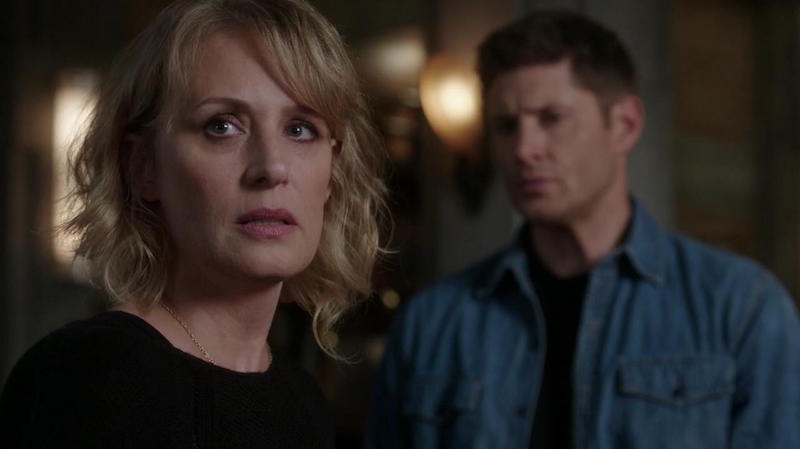
But what was not clear to me until Episode 22 was that it was Sam in particular whom she couldn’t face. It was Sam who had suffered the worst because of her actions, as laid out in anguishing detail by Dean, and it was Sam who she feared would be unable to forgive her. It finally clicked with me that this was the reason why she had generally limited her contact with the brothers to calls and texts to Dean. She simply felt far more guilt about what she had done to Sam, and it was easier and less painful for her to minimize her contact with him. That incredibly moving conversation between Mary and Dean, which bookended her conversation with Dean in “Mamma Mia,” showed beyond doubt that it was fear and guilt that had kept her from her sons, guilt over her deal with Azazel, and fear that her sons would never truly forgive her for it. It was probably very freeing for her to hear Dean say he hated her. It was what she had always feared, the conversation she had spent the whole season running from, so finally hearing it from Dean was probably a relief. That family hug at the end on 12.22 was heartwarming precisely because it rang so true. It has been a truism on Supernatural that family neither starts nor ends with blood, and Mary’s return was further proof of that. These characters had finally shared the kinds of experiences and heartfelt conversations upon which true family relationships are based, so their hug seemed genuine in a way that the hugs in the first two episodes did not.
I had no difficulty mustering sympathy for Mary. She was placed in a horrible, painful position, resurrected against her wishes, thrown together with two strangers who were desperate for an instant familial relationship with her, and forced to confront the terrible toll that her deal had taken on Sam and Dean. Was she cowardly to try to avoid facing that by keeping her distance from them both physically and emotionally? Maybe so, but given the entirety of her circumstances, I couldn’t judge her harshly. Like her sons, she is a flawed person who made some terrible mistakes, and inflicted pain on her loved ones. In light of his own past mistakes, Sam never had any trouble forgiving her; it was not even an issue for him. He was just happy to have this biggest blank in his life filled. Dean was a little slower to get there, but he too recognized that he was not in a position to heap blame on her, blame for making the same mistakes that he himself has made.
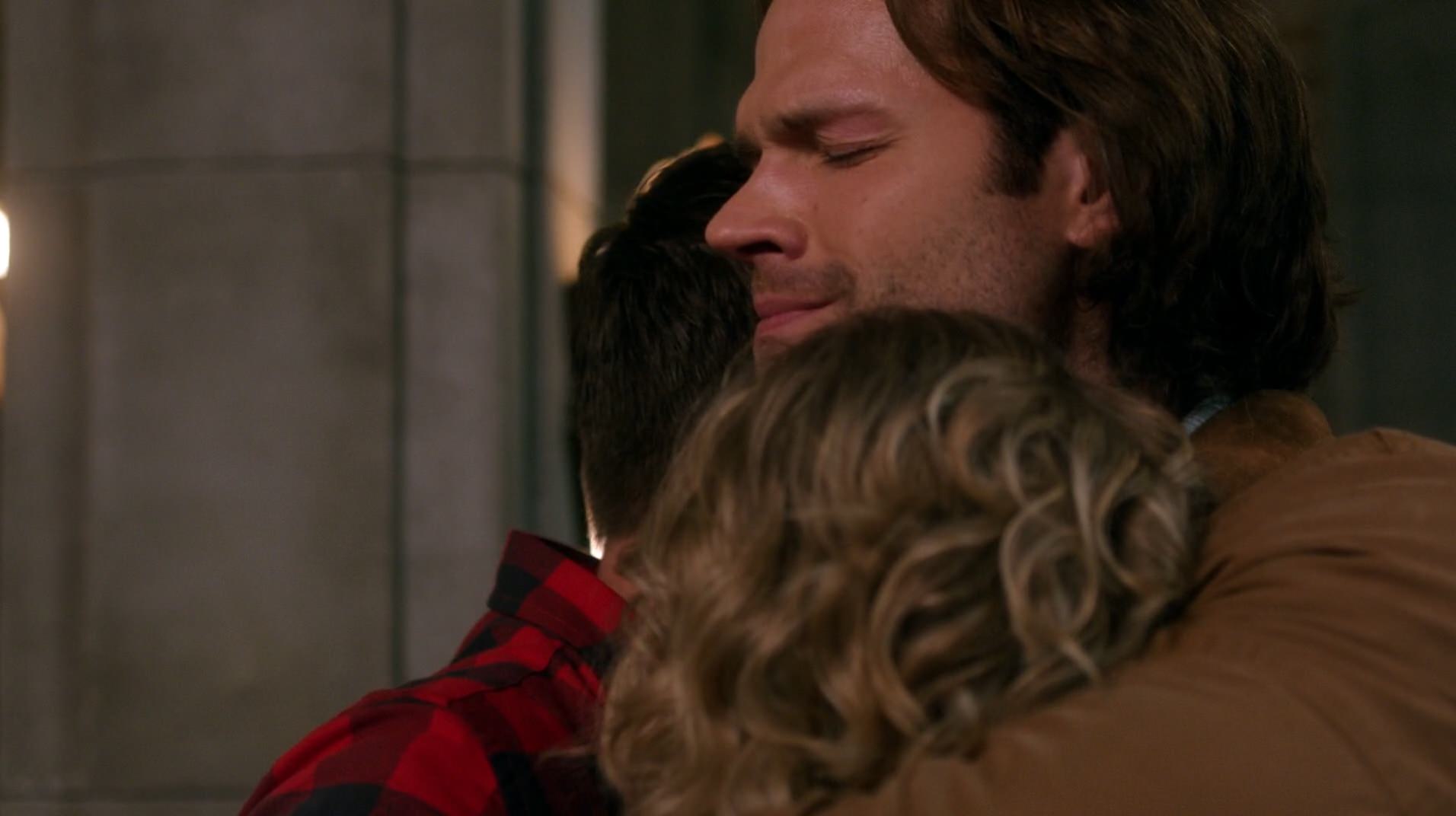
What Dabb did with Mary’s storyline was both brilliant and incredibly satisfying to me. He understood (and expressed last summer) that the brothers’ relationship is the heart of the show, and he also recognized that instant family harmony between the brothers and Mary would have been exceedingly dull from a dramatic perspective, as well as altogether implausible. So he gave us this complex, flawed, and utterly believable character who would naturally want to keep her distance from her sons. The brotherly bond at the core of the show remained intact, while the sometimes rocky relationship between the three of them fueled some wonderful insights into all three characters. The way the story unfolded over the course of the season was compelling, and the payoff at the end of the season was extremely touching. As far as where her story goes from here, I still don’t want Mary living at the bunker with the brothers or even a constant presence in their lives. So I’m thrilled that she is in the AU, and very curious about her fate.
Parent and Child
While I thought the show did a great job of inter-weaving the primary story arcs in ways that seemed very natural and unforced, there was also one theme which pervaded the entire season, including the three primary plot lines: the parent/child relationship. Nightsky beautifully laid out in her Threads articles the way this theme manifested in virtually every episode this season, so I will refer you to her articles for a comprehensive analysis. But this theme also was woven through all three storylines, albeit more subtlely in the case of the BMOL.
In Mary’s case, she was tormented by the incalculable damage that her demon deal inflicted on Sam and Dean’s lives, and devastated that it has led to her sons becoming hunters, a life she had rejected not just for them, but for herself. In her determination to try to undo some of that damage, she embarked on her alliance with the BMOL. Despite repeated assurances from both Sam and Dean that they have chosen to be hunters, that they are proud of what they have accomplished and feel that they have made the world a better place, she blindly rejected this notion and pursued her goal of ridding the world of monsters. Like her rash deal with YED, her alliance with the BMOL proved disastrous and inflicted even more loss and grief upon Sam and Dean. Only at the end did she finally make her peace with the fact that her sons have embraced their roles as hunters. Like every parent, she realized that she must allow her children to make their own choices, whether she likes them or not. Mary most certainly made enormous mistakes as a mother, but underlying everything she did in S12 was her love for her sons.
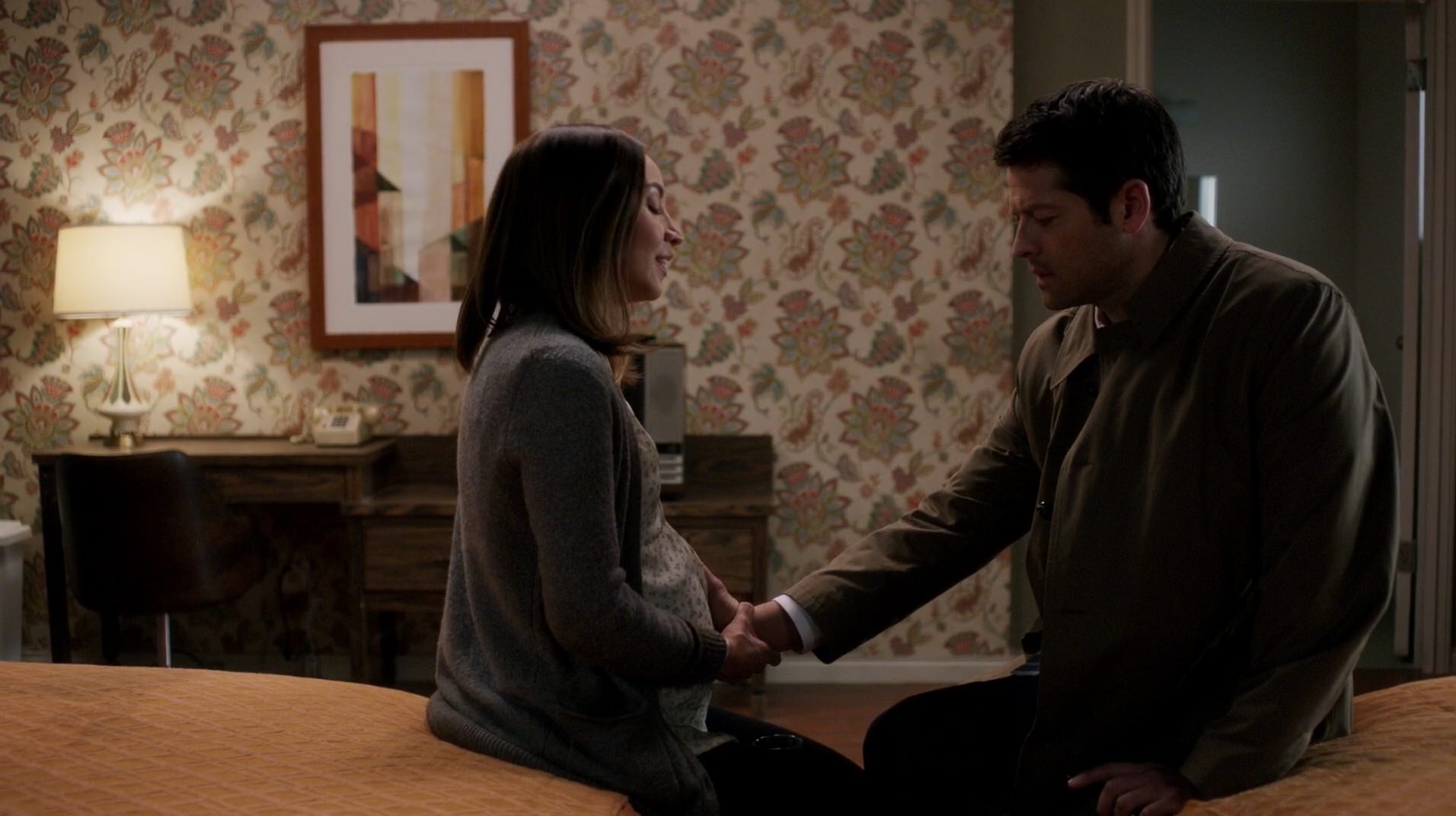
The nephilim storyline presented a portrait of parenthood that initially seemed diametrically opposed to that provided by Mary. Lucifer never even pretended that he loves his child; rather, he fathered a nephilim for the sheer joy of creating something powerful and, he assumes, evil. He presumed that his creation will be the monstrous counterpart to God’s most beloved creations, humans, and that his nephilim indeed will destroy humanity. What a perfect revenge on God that would be. But this grotesque perversion of parental “love” may not work out quite as Lucifer has planned, because he didn’t take into account Kelly’s love for her child. Whereas everyone else viewed the nephilim as an abomination, Kelly saw only her half-human son, whom she loved and in whom she sensed goodness. Unlike Magda’s mom, she refused to give up on her child, and she remained convinced to her last breath that she had pursued the right course in protecting her son. Whether she is ultimately right or wrong in this decision remains to be seen, but her choice seemed right and fitting for a mother.
The BMOL story only obliquely involved the parent-child relationship. Mick revealed that he was abandoned as a child and ultimately taken in by the BMOL, which assumed a quasi-parental role with him, as well as with Ketch, Toni, and others. This twisted version of parenthood was reminiscent of Lucifer. Like Lucifer, the BMOL viewed their young charges solely as tools, mindlessly obedient soldiers in an unholy cause. In his gratitude to the BMOL for providing him with a home, a life, and a place in their organization, Mick was unwilling to turn on them, clinging to his loyalty to the “family” that took him in. But like Magda, he eventually learned to trust in himself and think for himself, and he found the strength to reject the only “parent” he has ever known. For this, Mick, like Magda, met his death at the hands of Ketch.
Conclusion
S12 had in abundance everything I look for in Supernatural: emotion, action, humor, and even some genuine chills, which have become increasingly rare over the course of the series. There was only one episode that I deemed bad (yes, the Hitler one) and even that episode had some enjoyable aspects. There were many episodes that I thought were terrific and a few that I thought were standouts not just of this season, but in the series as a whole. Among the latter are “Who We Are,” “Stuck in the Middle (With You)”, “Keep Calm and Carry On,” “Celebrating the Life of Asa Fox, and “All Along the Watchtower.” Neither the season nor the episodes were perfect, of course. I don’t think any season has been. As always I had some quibbles and issues with characterizations and plot developments.
One miss for me was Eileen’s death, because she was a character I would have loved to see more of. But otherwise none of the deaths troubled me much, not even Eileen’s. The one constant on this show has been death, and the occasional deaths of those close to the brothers are the only thing that provides any stakes in the show. Moreover, some characters outlive their purpose in the show and it is time to let them go, as they should have done with Cas in S7 in my opinion. In that vein, I think Billie’s was a good death. She was a wonderful character and I love the actress, but the last thing the Winchesters should have is another supernatural “get out of jail free” card. It was bad enough that they have an angel in the pocket, the King Of Hell in the pocket, and a powerful witch in the pocket. Giving them an on-call reaper was starting to seem utterly ridiculous. Billie’s death also was a great surprise, which I loved, and was the centerpiece of what I thought was a terrific scene between the brothers, Mary, and Cas. We also now have those ominous “cosmic consequences” to learn more about.
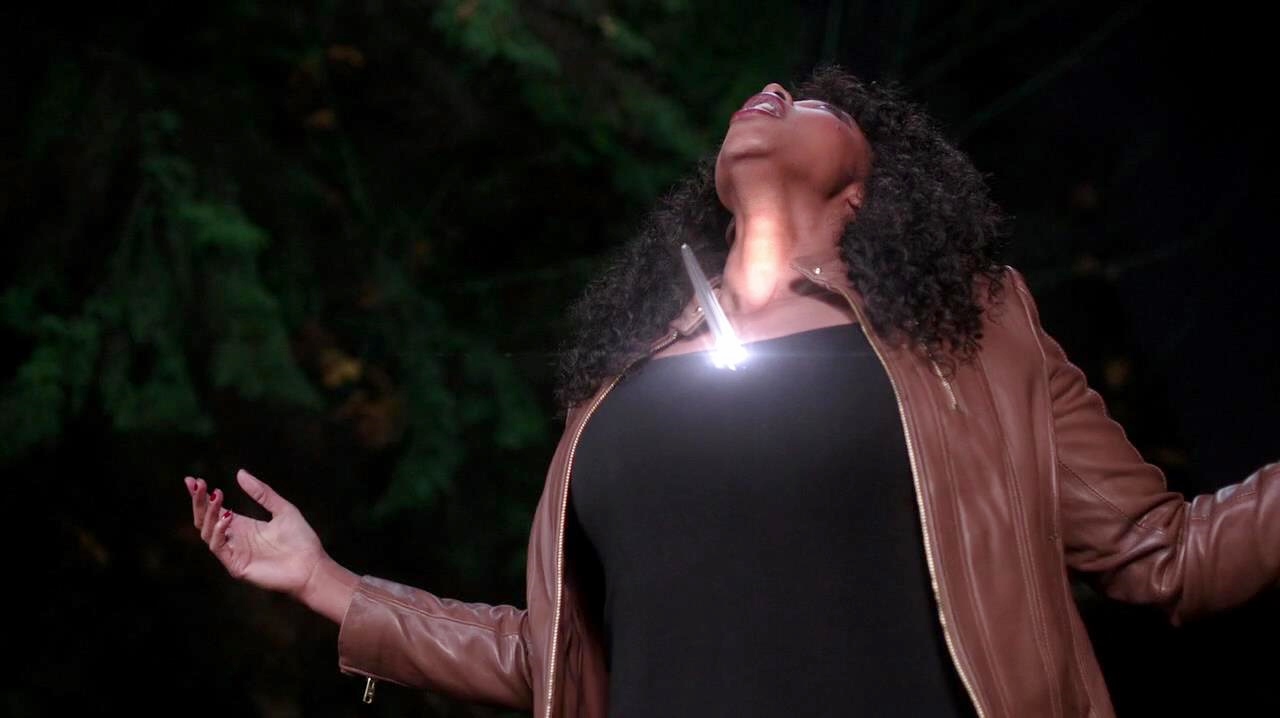
Nor did I have any trouble with the deaths of Rowena (if indeed she is gone) and Crowley, because both had been kept around even after the show was struggling to provide interesting, coherent storylines for them which kept them in the brothers’ orbit. In fact, I assume that was the sole reason Rowena was created – to provide a story for Crowley. Mark Sheppard recently stated that he thought that was a silly storyline for Crowley and I tend to agree. I will miss Crowley and his incomparable snark, as well as Mark Sheppard’s fantastic portrayal, but I have not been a fan of his character arc for quite awhile. Rowena finally became enjoyable for me to watch, but I’m thrilled to have one less powerful witch on the show- I hope.
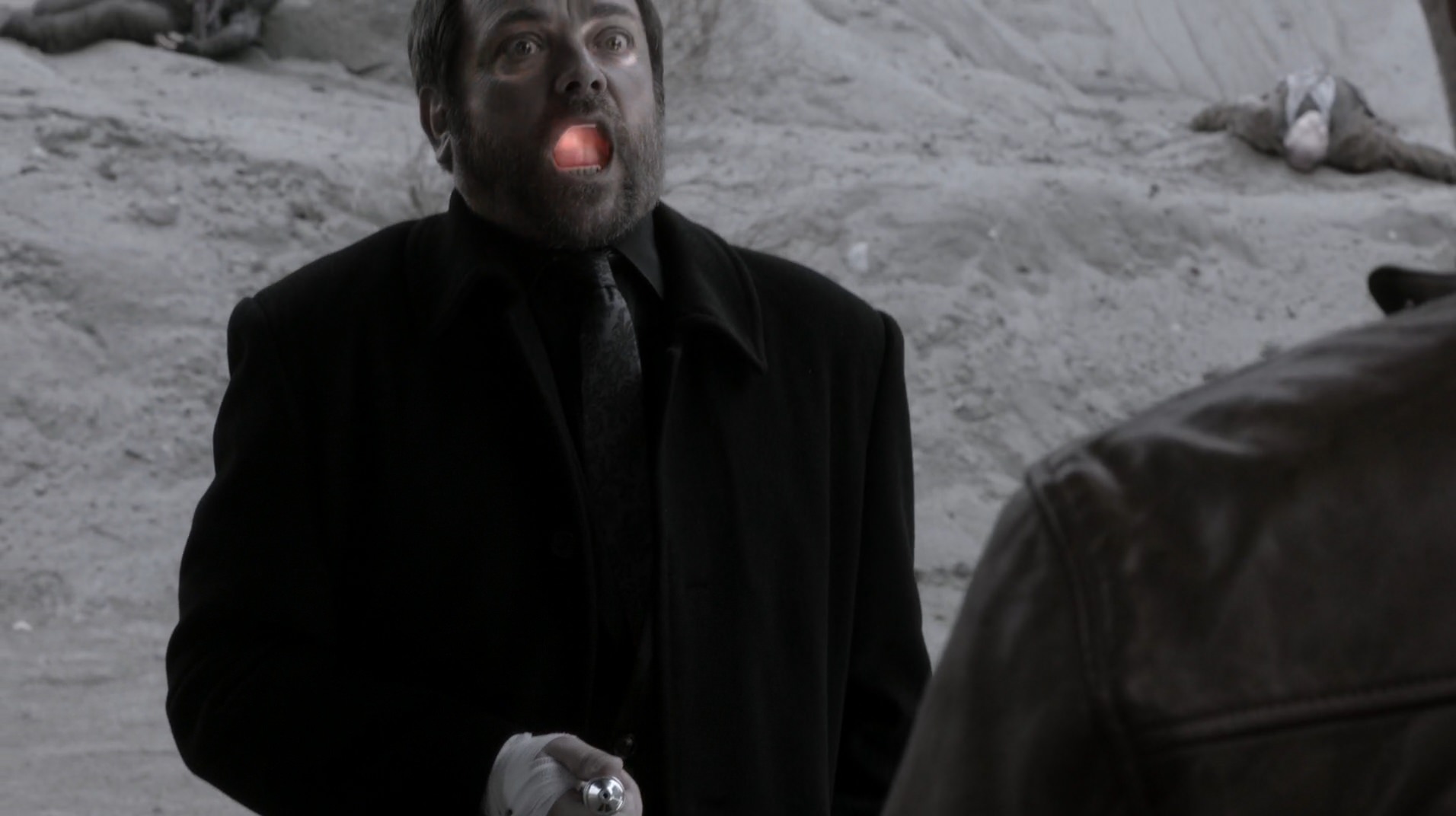
I didn’t write this article with the expectation that I would change the mind of anyone who disliked the season or the storylines or characters that I so greatly enjoyed. Our experiences as fans are intensely personal and we often have a visceral reaction to a character or episode that no amount of reasoning or persuasion can change. I will never like certain characters no matter how popular they are/were, and seasons 9-10 will forever be low points of the series in my mind. Similarly, I will continue to love Mary no matter how much her failings are pointed out by the substantial portion of the fandom that dislikes her. I don’t think anyone’s view on any show-related issue is wrong since it is entirely a matter of opinion. So then why write this ridiculously long article? Because once in awhile when I have disliked an episode, I have rewatched it after having read some favorable reviews or comments and, even if I didn’t entirely change my mind, I found aspects of it that I could appreciate. It is the reason I love coming to The WFB to discuss the show. So my goal was simply to provide food for thought to those who disliked and to those who liked the season. Maybe I pointed out something worthy about the season that you hadn’t considered, or maybe I just confirmed in your mind why you disliked part or all of it. Either reaction is fine by me.













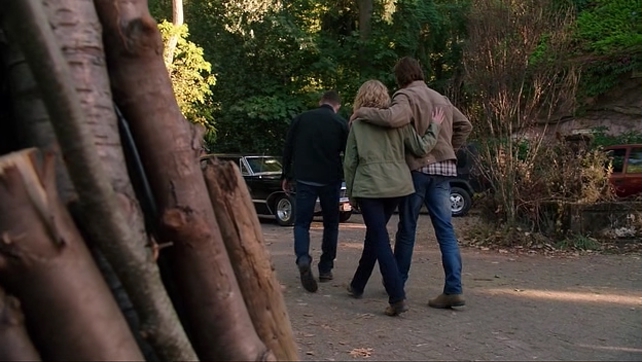












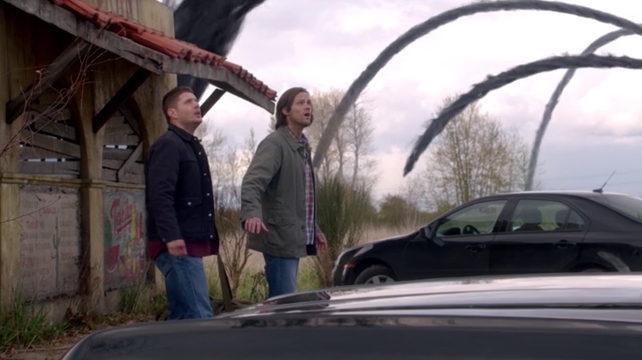
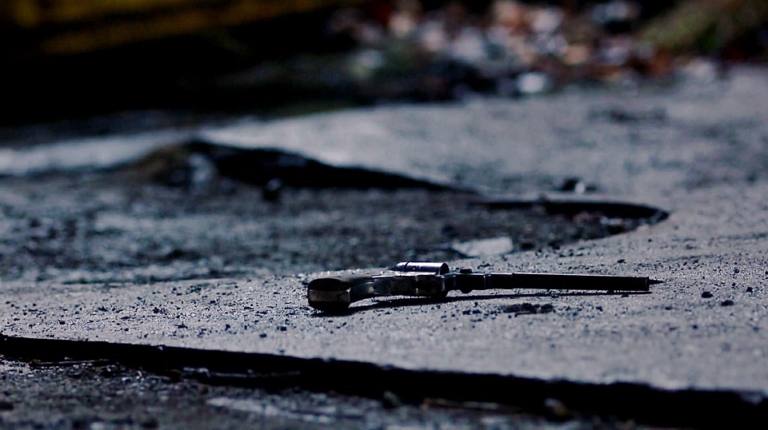
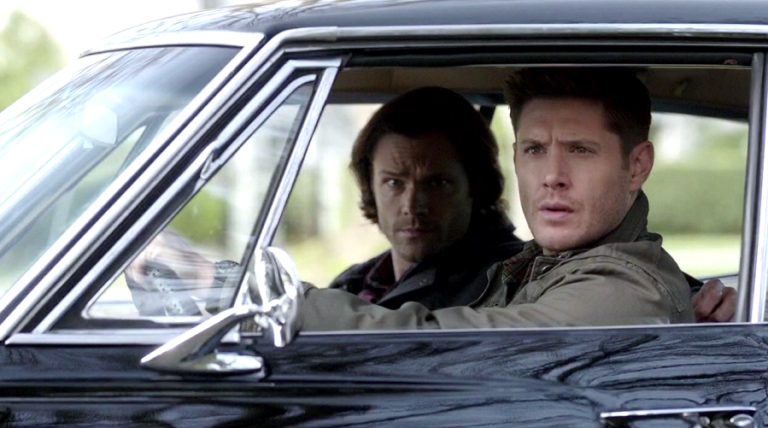

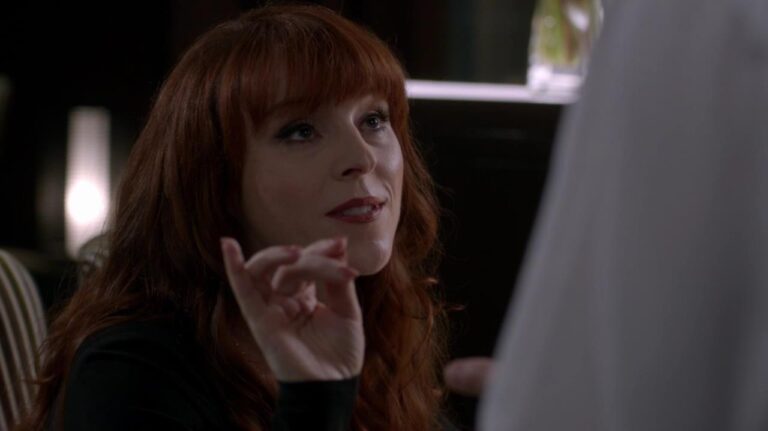
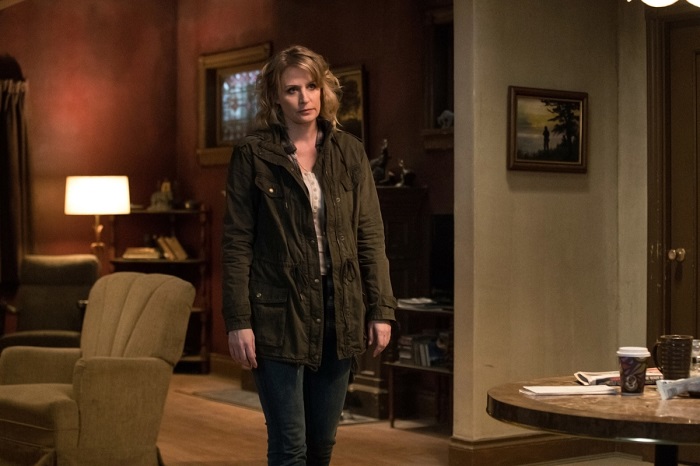
Leave a Reply